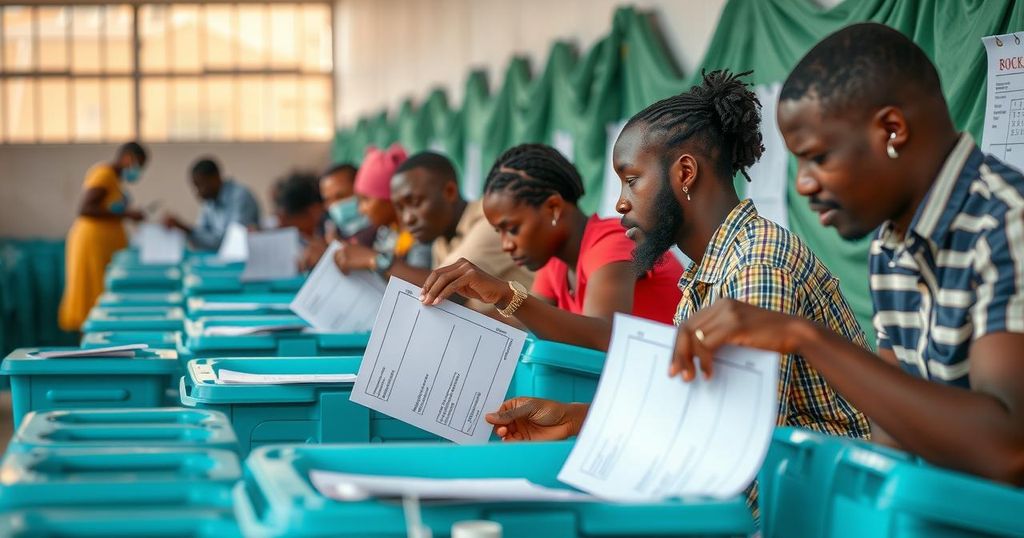Ghana’s presidential and legislative elections are unfolding against a backdrop of economic crisis and political uncertainty, with 18.7 million voters expected to participate. The elections are perceived as a test for democracy in West Africa, yet the leading candidates have not inspired confidence in their ability to bring about meaningful change.
On Saturday, elections were held in Ghana for both presidential and legislative positions, amidst a tumultuous economic landscape deemed the most severe crisis the nation has faced in a generation. The electoral process is considered crucial for evaluating democracy in a West African region that has experienced rampant extremist violence and a spate of coups. Approximately 18.7 million citizens are eligible to vote in an electoral contest that many anticipate will fail to deliver significant change due to the limited promise of the principal candidates.
This article addresses the general elections taking place in Ghana, which occur at a critical juncture for the country. The backdrop of these elections is characterized by an economic crisis impacting the lives of many Ghanaians. Amidst these challenges, the elections serve not only as a referendum on the current political leadership but also as a reflection of the broader democratic stability in West Africa, a region increasingly affected by political unrest and violence.
In conclusion, the elections in Ghana are taking place under the shadow of a severe economic crisis, with significant implications for the country’s democratic integrity. With nearly 19 million registered voters, the elections represent a vital opportunity for citizens to voice their concerns and aspirations, even as skepticism about the candidates remains prevalent. The outcome will be closely observed, both nationally and regionally, as a barometer of democratic resilience in troubled times.
Original Source: www.washingtonpost.com






